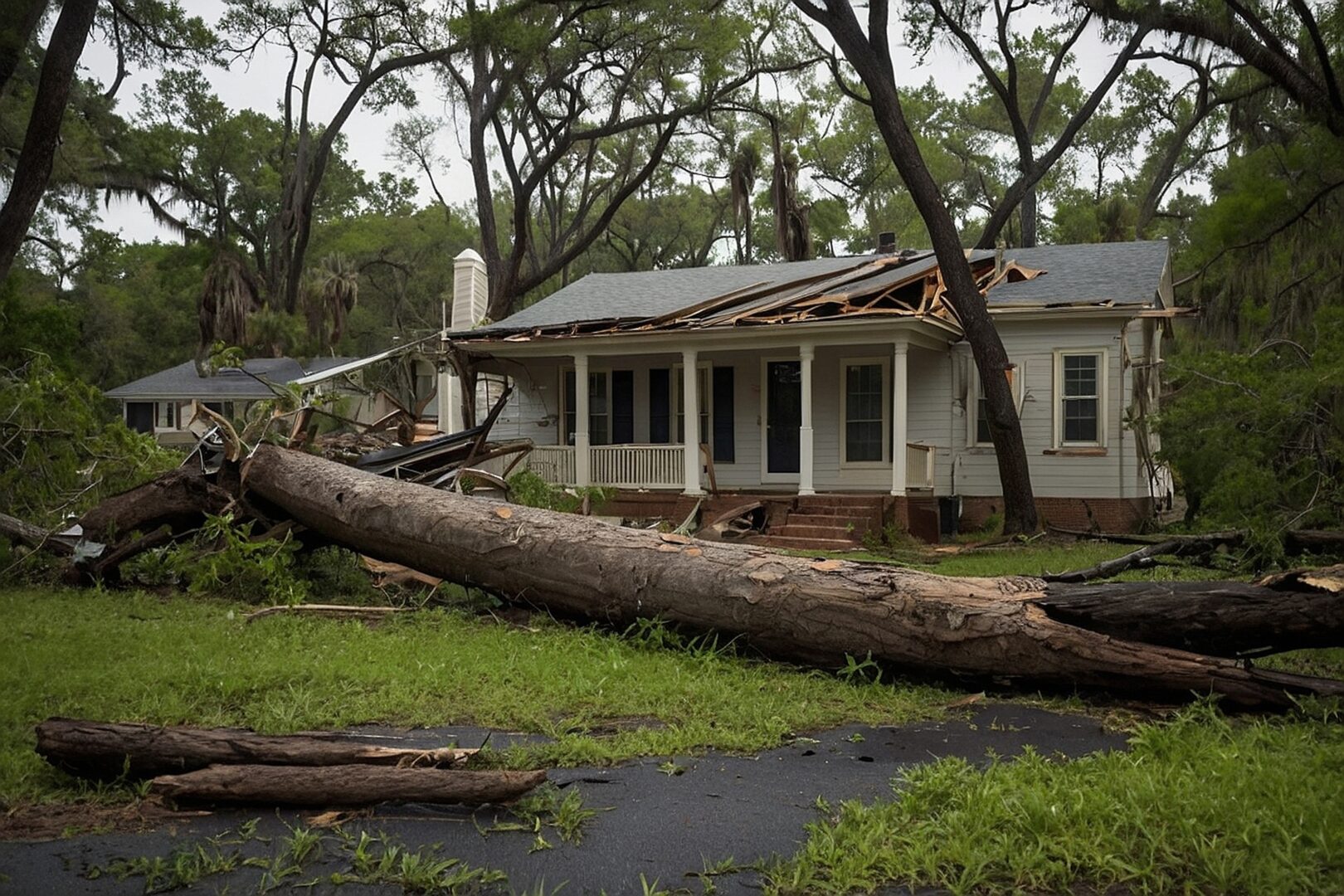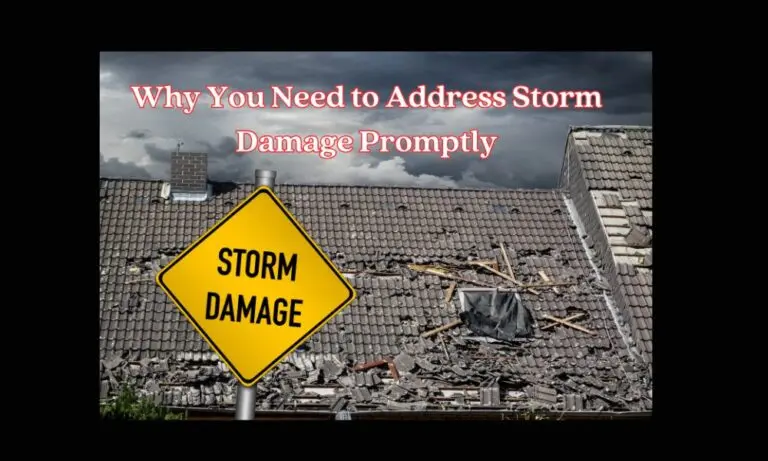
Storms are an inevitable part of life, especially if you’re living in areas prone to severe weather like Nashville and Middle Tennessee. Preparing for storm damage is not just about ensuring safety during a storm, but also about minimizing the potential aftermath that can disrupt your life. Here’s how residents in Nashville, Murfreesboro, and surrounding regions can proactively tackle storm damage preparedness.
Understand the Risks
The first step in preparing for storm damage in Nashville or any part of Middle Tennessee is to understand the specific risks your area faces. Whether it’s high winds, flooding, or tornadoes, knowing what to expect can help you tailor your preparation effectively. Research the types of storms common in your area, their frequency, and the typical damage they cause. Local government websites and weather services often provide valuable information and historical data on storm patterns and risks.
Assess Your Surroundings
Take a look at your immediate environment. Are there trees that could pose a risk to your property? Is your home in a flood-prone area? An assessment will help you identify potential hazards and take necessary precautions. Walk around your property and note any areas of concern. Pay attention to the condition of trees, especially those close to your home, as well as the drainage around your property. Ensure gutters and downspouts are clear and functioning properly to handle heavy rain.
Secure Your Property
- Protecting Windows and Doors
Reinforce your windows and doors to withstand harsh conditions. Consider installing storm shutters or impact-resistant windows to protect against flying debris. You can also use plywood to cover windows in an emergency. Ensure doors have proper seals and deadbolts to provide additional security during a storm. - Roof and Structure
Ensure that your roof is in good repair, as this is often the first line of defense against storm damage. Secure loose shingles and consider adding straps or clips to help anchor your roof to the walls of your home. Regularly inspect your roof for any signs of wear and tear, and address any issues promptly. Additionally, check the integrity of your home’s structure, including the foundation and walls, to ensure they can withstand high winds and heavy rain. - Secure Items to Prevent Flying Debris
Look around the exterior of your home. Secure any toys, tools, patio umbrellas, trash cans, or other items that could be turned into powerful projectiles in strong winds. Strong winds can use even the smallest item to cause damage to your home or yourself. Store these items indoors or in a secure shed when a storm is imminent. - Create an Emergency Plan
Have a plan in place for what to do before, during, and after the storm. This should include evacuation routes, communication plans with family members, and a safe room in the house if sheltering in place. Ensure every family member knows the plan and has practiced it. Identify multiple evacuation routes in case one is blocked, and establish a meeting point outside your home. - Emergency Kit
Prepare an emergency kit with essential items such as water, non-perishable food, flashlights, batteries, a first-aid kit, and important documents. Make sure every family member knows where it is located. Include items specific to your family’s needs, such as medications, baby supplies, and pet essentials. Keep the kit in a designated, easily accessible location.
Keep Informed
- Local Weather Alerts
Stay informed about the latest weather updates and alerts. Nashville and Murfreesboro residents can sign up for local notifications that provide real-time information about impending storms. These alerts can come via text messages, emails, or phone calls, and provide critical updates on storm paths and safety instructions. Nashville Severe WX is one of our favorite places to get current weather forecasts and their YouTube channel is great to watch during severe weather!
- Mobile Apps and Devices
Download weather apps on your mobile devices and consider purchasing a NOAA Weather Radio for reliable information during severe weather events. These tools provide timely updates and can be invaluable if you lose power or internet access. Set up alerts and notifications to receive warnings immediately. Nashville new stations like News Channel 5 and Channel 4 Weather Alerts are great options to stay alert! You can also download their weather apps to notify your cell phone of upcoming weather alerts! - Insurance Check-up
Review your insurance policies to ensure you have adequate coverage for storm damage. Understand what is and isn’t covered and consider additional policies like flood insurance if necessary. Contact your insurance agent to discuss your coverage options and make any necessary adjustments to your policy. - Document and Inventory
Keep an up-to-date inventory of your home’s contents and document the condition of your property before a storm. This will be invaluable if you need to file an insurance claim. Take photos and videos of your home’s interior and exterior, and store these records in a safe place, such as a cloud storage service or a fireproof safe.
After the Storm
- Safety First
After a storm passes, prioritize safety. Be cautious of hazards such as downed power lines and structural damages. Avoid standing water, which may be electrically charged from downed power lines, and do not enter damaged buildings until they have been inspected. - Assess and Document Damage
Carefully inspect your property for damage and document it thoroughly with photos and videos. This will help with insurance claims and repairs. Contact your insurance company as soon as possible to report the damage and begin the claims process. Keep records of all communication with your insurer and contractors. - Temporary Repairs
If it’s safe to do so, make temporary repairs to prevent further damage. Cover broken windows, tarp roof leaks, and remove water with buckets or a wet/dry vacuum. Keep receipts for any materials purchased for repairs, as these may be reimbursable under your insurance policy. - Seek Professional Help
For significant damage, hire a licensed and reputable contractor to make necessary repairs. Check references and ensure they are properly insured and bonded. Be wary of scammers who often prey on storm victims. Verify credentials and get multiple estimates before making a decision.
By taking these steps, you can better protect your home and family from the impact of severe storms in Middle Tennessee. Preparation and proactive measures can significantly reduce the damage and disruption caused by these inevitable weather events. Stay informed, stay safe, and be ready to act when severe weather threatens.
Table of Contents
Relevant Articles

Why Storm Damage Restoration Should Be A Top Priority
Unexpected Storms Wreak Havoc Storms can wreak havoc on homes and properties. Homeowners in the Nashville area are far too familiar with unexpected storms that can bring large hail, strong winds and even tornados to our area! The aftermath often leaves homeowners grappling with extensive damage to their roof and home. But, despite the devastation, many homeowners and businesses delay

Who Is MidSouth Construction? Your Friend in Roofing!
You’ve Got A Friend in Roofing! At MidSouth Construction, we don’t just consider ourselves a roofing company – we strive to be your friend in roofing. As proud, family-owned, and operated natives of Nashville and the Middle Tennessee area, we have a deep connection to the communities we serve. With over 14 years in business, we’ve grown by building lasting

Settling Into Our New Office at the Old Ezell House
We’re excited to share some wonderful news at MidSouth Construction
